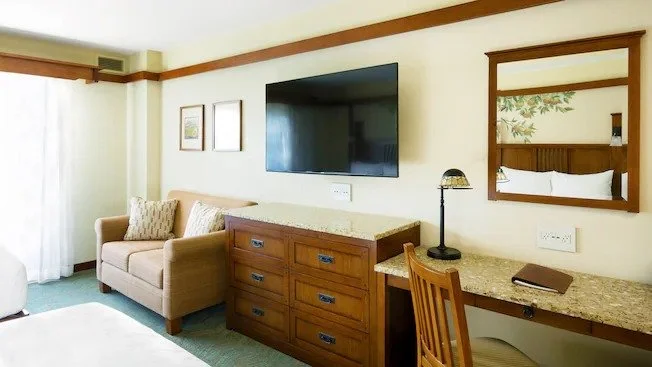The Travel Agent Interview Process
So you're thinking about becoming a travel agent? Here's something that might surprise you: most travel agencies don't have a traditional interview process at all. Yep, you read that right. The path to becoming a travel agent looks pretty different from applying for that typical 9-to-5 job!
Let me break down exactly what you can expect, whether you're joining a host agency or one of the few brick-and-mortar agencies that still do formal interviews. By the end of this guide, you'll know exactly how to prepare and what it takes to land your dream travel agent position!
Be sure to check us out here at MainStreet Travel, we offer a FREE membership, no annual or monthly fees, and no minimum booking requirements! Our Travel Plus membership is only $99 right now! We’re rated 5-stars on Host Agency Reviews!
The Reality: Most Host Agencies Skip the Traditional Interview
Here's the thing about the modern travel industry—it's evolved big time. The majority of travel agents today work with what's called a host agency, and these agencies operate completely differently than you might think.
Instead of a formal interview process with multiple rounds and stress-inducing questions, most host agencies have a straightforward sign-up and training model. That's because you're joining as an independent contractor, not an employee. You're essentially starting your own business under their umbrella.
Think of it like this: host agencies are more interested in your commitment to learning and your motivation to build a client base than they are in grilling you with interview questions. They make money when you make money, so they're invested in getting you trained and booking trips as quickly as possible.
Hotel Room
What the Application Process Actually Looks Like
When you apply to a host agency, here's the typical journey you'll take:
Step 1: Submit Your Application. You'll fill out an online form sharing basic information about yourself, any travel experience you have, and why you want to become a travel agent. Most agencies respond within 24-48 hours.
Step 2: Welcome Kit Review. Once accepted, you'll receive a welcome email with detailed information about how the agency operates, commission splits, and what to expect during training.
Step 3: Quick Introductory Call. This is where some people get confused—yes, there's usually a call, but it's not really an interview. It's more like a 10-20 minute conversation where you can ask questions and meet someone from the team who'll be your point of contact. They're checking that you're a real person who's serious about the opportunity, not putting you through an interrogation.
Step 4: Contract Signing. After your call, you'll review and sign an independent contractor agreement. This outlines your commission split (typically 70-85% for you), any monthly fees, and the terms of your partnership.
Step 5: Training Begins. Here's where the real work starts. Most host agencies provide comprehensive online training that covers everything from industry basics to booking systems to finding your first clients.
The beauty of this approach? No need to stress about having the "perfect" interview answers. The agencies want motivated people willing to learn, and they provide the structure to help you succeed.
Mountains
When You DO Need to Interview: Traditional and Corporate Agencies
Now, let's talk about the agencies that do have formal interview processes. These typically include established brick-and-mortar agencies, corporate travel management companies, and franchise locations that hire travel agents as employees rather than independent contractors.
What These Interviews Look Like
If you're interviewing for an employee position at a traditional travel agency, expect a more structured process similar to other professional roles:
Pre-Interview Screening: Many agencies start with a phone screening to assess your basic qualifications, communication skills, and genuine interest in the travel industry.
In-Person or Virtual Interview: This is the main event—typically 30-60 minutes where you'll meet with a hiring manager or agency owner. They'll ask about your experience, skills, and how you'd handle various travel agent scenarios.
Practical Assessment: Some agencies, especially larger ones, may include a practical component. This could involve creating a sample itinerary, demonstrating knowledge of booking systems, or role-playing a customer service scenario.
Final Interview: For more competitive positions, you might have a second interview with senior management or other team members.
Waterfall in Forest
Common Interview Questions You'll Face
Based on industry insights, here are the questions that come up again and again in travel agent interviews:
Background and Motivation Questions
"What inspired you to become a travel agent?"
"Can you describe your previous travel industry experience?"
"Why do you want to work for our agency specifically?"
Skills and Knowledge Questions
"What GDS systems have you used before?" (Global Distribution Systems like Amadeus, Sabre, or Galileo)
"How do you stay updated on travel trends and industry changes?"
"Walk me through your process for creating a complex itinerary."
Customer Service Scenarios
"Tell me about a time you went above and beyond for a customer."
"How would you handle an angry client whose flight was canceled?"
"Describe a situation where you had to manage a client's expectations when their budget didn't match their dream vacation."
Sales and Business Questions
"How do you feel about working on commission?"
"What would you do if you weren't meeting your sales goals?"
"How do you approach upselling travel insurance or excursions?"
The key thing interviewers want to see? Your customer service skills, your sales aptitude, your problem-solving abilities, and your genuine passion for travel. They're not expecting you to know everything—they can teach you the systems. They're looking for the right attitude and personality.
How to Prepare for a Travel Agent Interview
If you're one of the folks facing an actual interview, don't sweat it. Here's your game plan to walk in confident and prepared.
Do Your Research
Know the Company Inside Out. Visit their website, read their reviews, check out their social media. What types of travel do they specialize in? Who are their typical clients? What makes them different from other agencies?
Understand the Industry. Stay current on travel trends, popular destinations, and recent changes in travel regulations. Being able to discuss what's happening in the industry shows you're serious about this career.
Research Common Travel Tools. Familiarize yourself with booking systems, CRM platforms, and GDS systems even if you haven't used them professionally. Showing you've taken the initiative to learn about these tools demonstrates commitment.
Practice Your Responses Using the STAR Method
The STAR method (Situation, Task, Action, Result) is your best friend for behavioral interview questions. Here's how it works:
Instead of rambling, structure your answers by describing the Situation you faced, the Task you needed to accomplish, the Action you took, and the Result you achieved. This keeps your answers focused and impressive.
For example, if asked about handling a difficult client: "A couple's honeymoon hotel reservation was lost three days before their trip (Situation). I needed to find them comparable accommodations and restore their confidence in our service (Task). I immediately contacted partner hotels, secured an upgraded room at a better resort, arranged complimentary transfers, and personally called the couple to explain the situation (Action). They were thrilled with the upgrade and sent me a glowing review afterward, plus referred three friends (Result)."
Prepare Questions to Ask
Remember, interviews are two-way streets. Having thoughtful questions prepared shows you're seriously considering the role. Try these:
"What does your training program look like for new agents?"
"What types of clients does the agency primarily work with?"
"How do you support agents in building their client base?"
"What supplier relationships and preferred partnerships do you have?"
"Can you tell me about the commission structure and any performance bonuses?"
Dress Professionally
Even though the travel industry can be more relaxed than some fields, always dress professionally for your interview. For women, opt for a tailored suit, professional dress, or business casual separates. For men, a suit or dress pants with a button-down shirt and blazer works perfectly.
The rule of thumb? It's better to be slightly overdressed than underdressed. You want the focus on your qualifications, not wondering if you took the interview seriously.
Showcase Your Personality
Here's something really important: travel agencies want agents who are personable, enthusiastic, and genuinely passionate about helping people create amazing experiences. Don't be afraid to let your personality shine through. If you love travel, show it! Share stories about your own adventures or what excites you about helping others discover the world.
Understanding Commission Splits and Compensation
Whether you're interviewing or signing up with a host agency, you need to understand how travel agent compensation works because it's probably going to come up.
Most travel agents work on commission, earning a percentage of the bookings they make. Here's the breakdown:
Standard Commission Rates: Hotels, cruises, and tours typically pay travel agents between 5-20% commission on bookings. The average hovers around 10-12% for most suppliers.
Commission Splits with Host Agencies: If you're working with a host agency, you'll split the commission with them. Competitive host agencies offer splits ranging from 70-85%, with you keeping the larger portion. Anything below 70% is generally considered unfavorable for new agents.
Planning Fees: Many travel agents also charge clients a planning or consultation fee for their time creating custom itineraries. This can range from $50 to several hundred dollars depending on the complexity of the trip.
During an interview or initial call, don't be shy about asking these compensation questions. A reputable agency will be transparent about commission structures, payment timelines, and any monthly fees you might be responsible for.
Stingray
What Training Should You Expect?
Whether you're joining through a sign-up process or being hired through an interview, comprehensive training is essential—and any legitimate agency should provide it.
Core Training Topics
Expect your training to cover:
Industry Basics: Understanding how the travel industry works, key terminology, and professional standards
Booking Systems: How to use booking platforms, GDS systems, and CRM tools to manage client information
Supplier Relationships: Learning about preferred partnerships, how to access special rates, and exclusive perks
Sales Skills: Techniques for finding clients, closing bookings, and handling objections
Legal and Compliance: Understanding travel regulations, insurance requirements, and documentation
Destination Knowledge: Information about popular destinations, hotels, cruise lines, and tour operators
Quality training programs typically take anywhere from a few weeks to a couple of months to complete, depending on whether you're working full-time or part-time on your training.
Ongoing Education and Certifications
The travel industry changes constantly, so ongoing education is crucial. Many successful agents pursue industry certifications like:
Certified Travel Associate (CTA) from The Travel Institute (requires 18 months of experience)
ASTA Verified Travel Advisor from the American Society of Travel Advisors
CLIA certifications for cruise specialists
These aren't always required, but they boost your credibility with clients and can help you command higher fees.
The Haunted Mansion
Red Flags to Watch Out For
Not every opportunity is created equal. Here are warning signs to look for during the interview or application process:
Unrealistic Income Promises: If someone guarantees you'll make six figures in your first year with minimal effort, run. Successful travel agents build their businesses over time.
High Upfront Fees: While some host agencies charge modest monthly fees ($25-50), be wary of agencies demanding thousands of dollars upfront or pushing expensive "starter packages".
Lack of Training or Support: If an agency can't clearly explain their training program or support structure, that's a major red flag.
Vague About Commission Structure: Any legitimate agency should be completely transparent about how you'll earn money, commission splits, and payment timelines.
Pressure Tactics: Whether it's pressure to sign immediately or to recruit other agents (multi-level marketing vibes), legitimate agencies give you time to make informed decisions.
Aurora Borealis
Host Agency vs. Traditional Employment
So how do you decide which path is right for you? Here are the key considerations:
Choose a Host Agency If You Want:
Flexibility to work from anywhere and set your own schedule
Higher commission splits (70-85%)
Ownership of your client list and business
Lower startup costs with support from an established agency
The independence of being your own boss
Choose Traditional Employment If You Prefer:
A steady base salary with commission on top
Set hours and structure
Benefits like health insurance and paid time off
Less responsibility for finding your own clients
Working as part of a physical office team
There's no wrong answer here—it depends on your personality, financial situation, and career goals.
Tiana’s Palace
Frequently Asked Questions
Do I need experience to become a travel agent?
No! Many people become successful travel agents with no prior experience in the industry. What matters most is your willingness to learn, customer service skills, and passion for travel. Host agencies and training programs are specifically designed to teach you everything you need to know.
Do I need a college degree to be a travel agent?
Nope. While some traditional agencies prefer candidates with degrees, especially in tourism or hospitality, it's not required. Most host agencies only require a high school diploma or equivalent. Your sales skills, personality, and dedication matter more than formal education.
How long does it take to start earning money as a travel agent?
This varies widely. With a host agency, you could make your first booking within weeks of completing training. However, building a sustainable income typically takes 6-12 months as you establish your client base and gain experience. Remember, you're paid on commission, so your income is directly tied to how much you book.
Can I become a travel agent as a side hustle?
Absolutely! Many successful travel agents start part-time while maintaining other employment. The flexibility of working with a host agency makes this especially feasible. You can build your business gradually and transition to full-time once your income supports it.
What's the difference between a host agency and a traditional travel agency?
A host agency provides independent contractors with credentials (like an IATA number), supplier relationships, training, and support while you operate your own travel business. You work remotely and keep most of the commission (typically 70-85%). A traditional travel agency employs you directly, often at a physical location, and you receive a salary plus lower commission splits.
Do I have to pay to become a travel agent?
It depends. Many host agencies have no upfront costs, though some charge modest monthly fees ($25-50) for access to their systems and support. Traditional agencies hiring you as an employee typically don't charge anything. Be very cautious of anyone asking for large upfront payments—that's often a red flag.
What states require a travel agent license?
Only a handful of states require seller of travel licenses: California, Florida, Hawaii, Washington, Iowa, and Nevada have specific regulations. However, if you work with a host agency, their licensing typically covers you unless you're collecting payments directly from clients into your own business account. Your host agency will guide you through any necessary registrations.
How do interviews for corporate travel agent positions differ?
Corporate travel agent roles typically have more rigorous interview processes since you're managing business travel for companies. Expect questions about GDS systems, handling high-volume bookings, managing travel policies, and working under tight deadlines. They may also test your knowledge of specific booking platforms and require demonstrations of technical skills.
Your Next Steps
Ready to start your travel agent journey? Here's your action plan:
If you're going the host agency route: Start researching reputable host agencies, read reviews on sites like Host Agency Reviews, and reach out to 2-3 agencies that align with your goals. Ask about their training programs, commission splits, support systems, and monthly fees. Then complete their application and get ready for training.
If you're pursuing traditional employment: Update your resume to highlight customer service experience, sales skills, organization abilities, and any travel-related knowledge. Search job boards like Indeed for travel agent positions, prepare for interviews using the tips in this guide, and start networking with people in the industry!
Either way, the travel industry is booming in 2025, with demand for travel agents growing faster than average. People want personalized service, expert advice, and someone to handle the overwhelming details of trip planning. That's where you come in!
The travel agent interview process—or lack thereof—doesn't have to be intimidating. Whether you're signing up with a host agency or preparing for a formal interview, you now know exactly what to expect and how to succeed. Your dream of turning your love of travel into a rewarding career is totally within reach. So what are you waiting for? Start your journey today, and who knows? In a few months, you could be helping clients plan their dream vacations while building the flexible, fulfilling career you've always wanted!
Safe travels on your new career path! ✈️












